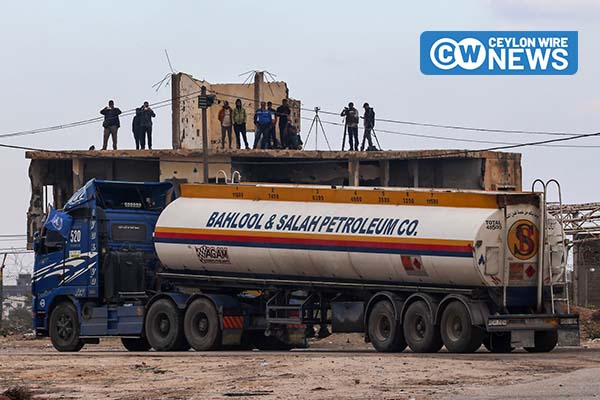Amid mounting pressure from the United States, Israel has announced its decision to permit two fuel trucks daily to enter the Gaza Strip, marking a significant development in addressing the escalating humanitarian crisis in the region.
A US State Department official revealed that approximately 140,000 liters of fuel would be allowed every two days, with the primary focus on supporting trucks delivering aid and aiding the UN’s water and sanitation initiatives. The remaining fuel allocation is directed towards restoring mobile phone and internet services, previously disrupted due to a lack of fuel.
The deal, agreed upon in principle weeks ago, faced delays from Israel, citing reasons that the fuel had not entirely run out in southern Gaza. Additionally, there was a reported desire to explore negotiations for a potential hostage deal before finalizing the agreement.
The new fuel allowance, expected to be brought in through the Rafah crossing to the southern Gaza Strip’s civilian population via the UN, aims to provide minimal support to critical infrastructure such as water, sewage, and sanitation systems. The goal is to prevent the outbreak of epidemics that could exacerbate the already dire situation in the area.
International organizations have expressed deep concerns about the humanitarian crisis unfolding in Gaza. The World Health Organization (WHO) has warned of alarming trends in disease spread, citing disruptions caused by the lack of fuel and Israeli bombardment on the healthcare system and sanitation facilities.
Richard Peeperkorn, the WHO’s representative in the Palestinian Territories, reported figures higher than expected, with over 70,000 cases of acute respiratory infections and more than 44,000 cases of diarrhea. Fuel is crucial for running Gaza’s desalination plant, providing electricity to homes and hospitals, supporting sanitation, transport, and communications infrastructure, and facilitating aid delivery.
Israel, citing concerns that fuel could be misappropriated by Hamas for military purposes, had previously blocked fuel from entering Gaza. The recent decision to allow fuel aims to address the urgent humanitarian needs in the region.
In related developments, Gaza faced additional challenges as reports emerged of casualties from an airstrike on a residential building in Hamad city, with 26 people reported dead and 23 seriously injured. The Israeli military has yet to comment on the incident. Additionally, the Red Crescent reported at least five Palestinians killed in an Israeli airstrike on a building in the Balata refugee camp in Nablus, West Bank.
US Secretary of State Antony Blinken urged Israel to take urgent action to de-escalate tensions in the West Bank, including addressing rising levels of settler extremist violence. The plea comes after the Israeli military reported killing at least seven militants in separate confrontations in the West Bank, following the brutal October 7 attack by Hamas, resulting in casualties and hostages. The ongoing conflict has claimed at least 12,000 lives in the territory since Israel initiated retaliatory strikes. Source – BBC








